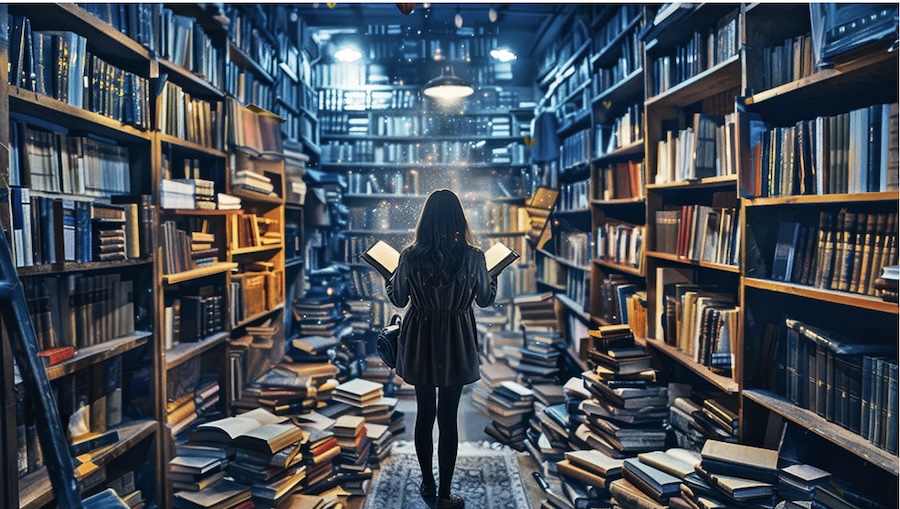… EDUCATION FOR PEACE …
An article by Laura Lucía Romero Mireles in Gaceta UNAM (translation by CPNN)
For peace, the great challenge is to transform the current culture of violence into one of dialogue, understanding and solidarity, characterized by respect for life and the dignity of people, social harmony founded on the principles of freedom, justice, democracy and solidarity, and rejection of all forms of violence,. This is the conclusion of the first session of the VI Virtual Forum Agenda 2030, libraries as drivers of a peaceful and sustainable future.

The keynote address was delivered by Ana Dolores Barrero Tiscar, director of the Culture of Peace Foundation in Spain. She said that developing a culture of peace is the only way to address the complexity of current needs and insecurities. However, carrying out this transformation is not an easy task, because violence has existed since the beginning of humanity; it is learned, socially constructed throughout history.
In her address, she mentioned that the United Nations Agenda 2030, in its 17 sustainable development goals and its 169 targets – which aim to eradicate poverty, protect the planet and ensure peace and prosperity for all people – recognizes the transversal and multidimensional scope of the culture of peace.
At the opening ceremony, Verónica Elena Solares Rojas, deputy director of Education, Training and Updating for Sustainability of the University Coordination for Sustainability, representing Tamara Martínez Ruiz, secretary of Institutional Development, highlighted that libraries are key players in building an environmental, peace-building, informed and proactive citizenry, by providing access to scientific, humanistic, reliable and quality knowledge.
More and more higher education institutions and spaces for the dissemination of knowledge around the world are recognizing their central role in the transition towards sustainability, she added at the meeting held from September 25 to 27.
UNAM, in its Institutional Development Plan, proposes sustainability as a cross-cutting axis for its substantive tasks. “Education strategies cannot be carried out without the existing material resources that are in the library collections; thus, from the Coordination we seek to strengthen education for sustainability at all levels.”
(Article continued in right column)
Is there progress towards a culture of peace in Mexico?
(Article continued from left column)
Elsa Margarita Ramírez Leyva, general director of Libraries and Digital Information Services, described these facilities as living centers where learning, innovation, creativity, recreation, and enjoyment coexist, and which until now have been places of peace and harmony.
In this Directorate and the 140 libraries that make up the UNAM library and information system, she added, they have long been contributing to sustainable development through different actions. An example of this is that they all facilitate efficient and broad access to physical and digital collections, and open access resources, which also benefits other communities.
Rocío Cázares Aguilar, head of the Acquisitions Department of the National Library of Mexico, explained that for some years now this agency has had an annual program of donation of bibliographic materials to the Eastern Preventive Men’s Prison, and it has been very successful.
“We have received comments from inmates commenting on how their lives have changed by being sent stimulating materials of interest, of a legal or literary nature, which encourages us to continue sowing those seeds of peace among those citizens who also have the right to the information and recreation that libraries can offer.”
The coordinator of the Graduate Program in Library Science and Information Studies, Lina Escalona Ríos, commented that from the library education “we reflect on what we have done for the training of professionals, teachers and doctors, who must contribute to the achievement of the objectives of peace and sustainability.”
For his part, Gerardo Zavala Sánchez, coordinator of the College of Library Science and Archives, of the Faculty of Philosophy and Letters, stressed that the education of librarians in training is relevant at this historical moment, and it is necessary to have a comprehensive vision in the quality study plans and programs, where respect and harmony between society and the planet must be paramount.
Máximo Román Domínguez López, president of the National College of Librarians, highlighted the commitment to society to rebuild the social fabric with the active participation of librarians, and how libraries can be agents of peace in a country where violence prevails.
Finally, Daniel Jorge Sanabria Barrios, president of the National College of Librarians, highlighted the commitment to society to rebuild the social fabric with the active participation of librarians, and how libraries can be agents of peace in a country where violence prevails.
– – – – – –
If you wish to make a comment on this article, you may write to coordinator@cpnn-world.org with the title “Comment on (name of article)” and we will put your comment on line. Because of the flood of spam, we have discontinued the direct application of comments.